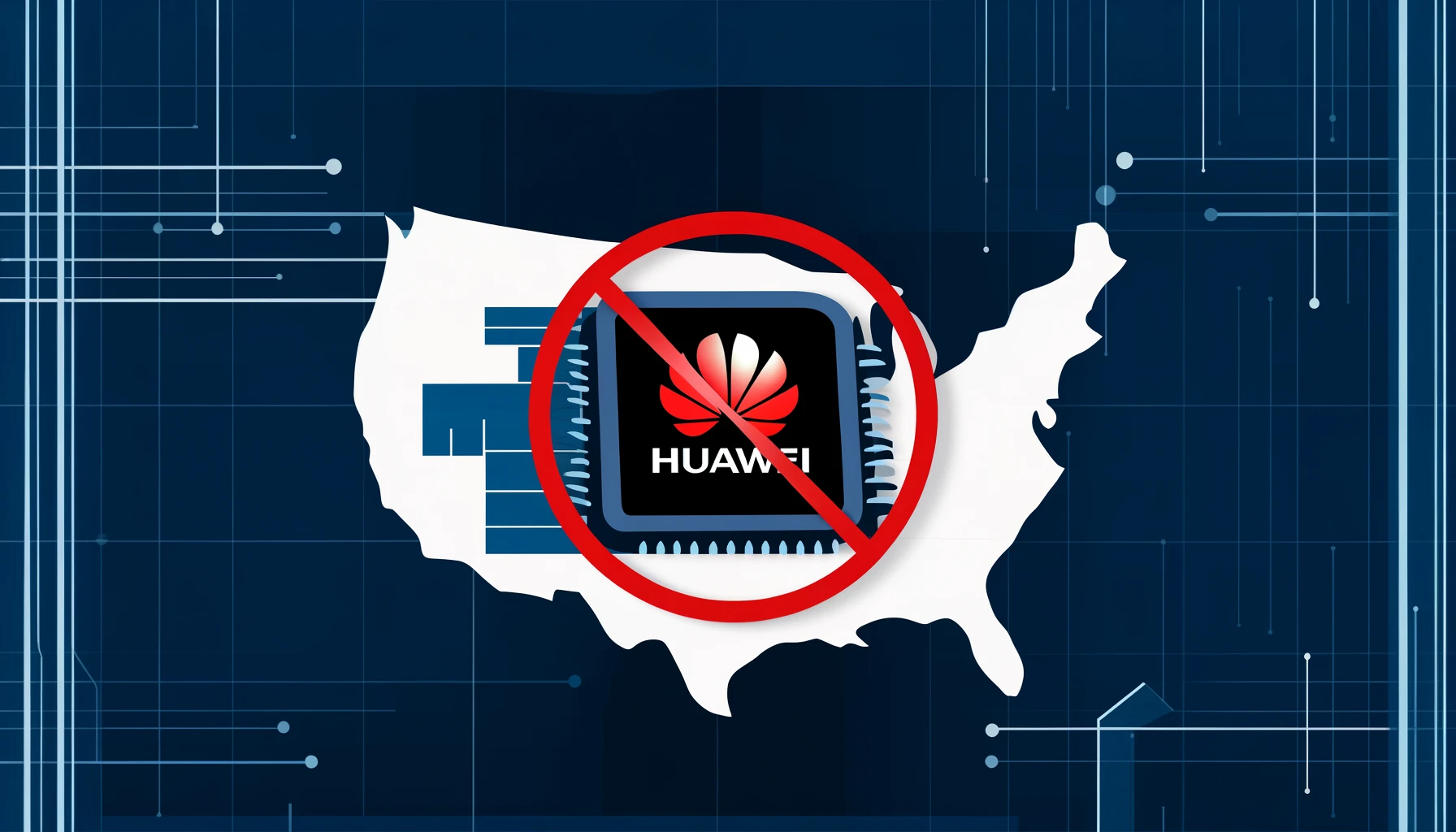
In a significant move that underscores the ongoing geopolitical tensions between the U.S. and China over technological dominance, the U.S. Department of Commerce has announced the revocation of certain licenses for chip exports to Chinese technology giant Huawei. This decision marks a continuation of the United States’ efforts to curb the advancement of China’s tech sector, particularly in areas deemed sensitive to national security.
The Commerce Department, in a statement to CNBC, emphasized the dynamic nature of their export controls, which are frequently reviewed to align with the national security and foreign policy objectives of the United States. A spokesperson for the department clarified, “We continuously assess how our controls can best protect our national security and foreign policy interests, taking into consideration a constantly changing threat environment and technological landscape.” They added, “As part of this process, as we have done in the past, we sometimes revoke export licenses.”
However, specifics about which licenses were revoked were not disclosed, though it was confirmed that the actions were targeted at exports to Huawei. This move is part of a broader strategy that started in 2019 when Huawei was first added to the U.S. trade blacklist, effectively banning U.S. firms from selling advanced technological components like 5G chips to the company.
The blacklisting and subsequent restrictions have forced Huawei and its suppliers to adapt. Notably, in 2020, the U.S. tightened restrictions further by requiring foreign manufacturers using American chipmaking equipment to obtain a license before selling semiconductors to Huawei.
Despite these challenges, Huawei’s consumer business, which includes high-demand products like smartphones and laptops, has shown resilience and innovation. For instance, the launch of the Huawei Mate 60 Pro smartphone in August marked a significant achievement, boasting an advanced chip produced by SMIC, China’s top chipmaker, despite U.S. efforts to limit Huawei’s access to cutting-edge semiconductor technology.
The adaptation of Huawei to these constraints is evident in their accelerated efforts to develop in-house technologies, reducing dependence on U.S. suppliers. TechInsights’ analysis of the Mate 60 Pro revealed not only the advanced SMIC chip but also confirmed the device’s 5G capabilities, which were specifically targeted by U.S. sanctions.
Additionally, U.S. chipmakers like Qualcomm and Intel, which have been pivotal in supplying Huawei, are feeling the ripple effects. Qualcomm noted in an SEC filing that it anticipates a significant impact on its operations due to Huawei’s pivot towards developing its own chip solutions. The company stated, “While we have continued to sell integrated circuit products to Huawei under our licenses, we do not expect to receive product revenues from Huawei beyond the current calendar year.”
Huawei’s aggressive strategy extends beyond hardware innovation. The company launched a new series of smartphones, the Pura 70, last month, directly challenging market leaders like Apple in the Chinese market. According to Counterpoint Research, this strategic positioning is paying off, as Huawei’s smartphone sales soared by 69.7% in the first quarter, while iPhone sales dropped by 19.1%.
The financial impact of Huawei’s strategic shifts is substantial. In 2023, the company reported a net profit increase of 144.5% from the previous year, amounting to 87 billion yuan (approximately $12 billion). This surge is partially attributed to the robust sales of the Mate 60 Pro in China.
Huawei’s Financial and Market Growth (2023)
| Metric | Q1 2022 | Q1 2023 | Percentage Change |
|---|---|---|---|
| Net Profit (in billion yuan) | 35.6 | 87 | +144.5% |
| Smartphone Sales (Percentage Growth) | – | +69.7% | – |
| Market Share in China (Percentage) | 21% | 31% | +10% |
Key Points:
- Licenses Revoked: U.S. Commerce Department has revoked specific export licenses to Huawei, impacting the supply of advanced chips.
- Technological Adaptation: Despite restrictions, Huawei continues to innovate, recently launching the Mate 60 Pro with a domestically produced advanced chip.
- Market Dynamics: Huawei is gaining market share in China, challenging major competitors like Apple.
- Financial Growth: Huawei’s strategic innovations and market adaptations have led to a substantial increase in net profit in 2023.
As geopolitical and technological landscapes continue to evolve, the interplay between national security concerns and global tech development remains complex and dynamic, with significant implications for companies and countries alike.
Related News:
Featured Image courtesy of DALL-E by ChatGPT
